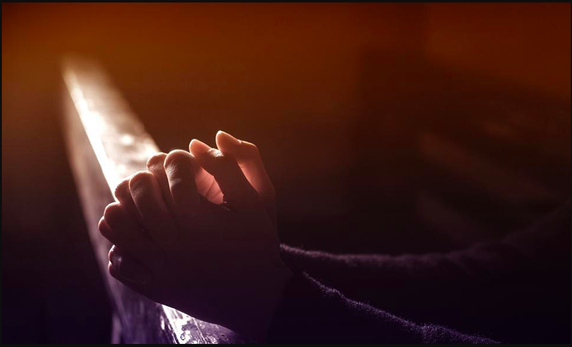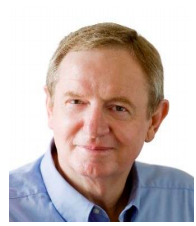|
If you have ever traveled in a predominantly Muslim country, you have heard the “Call to Prayer.” Every mosque has some way of making a public pronouncement much like churches used to ring their bells to announce it’s time for Sunday worship. But instead of hearing the bells once a week, you will hear the call to prayer five times a day. If you have ever had a serious conversation with a Muslim, you have been asked, “Why don’t Christians pray?” For Islam, the daily prayers are one of the five pillars or foundational acts. The Five Pillars of Islam are the five obligations that every Muslim must satisfy in order to live a good and responsible life. A practicing Christian could honestly respond, “I do pray, but it’s not a ritualistic obligation that I do primarily in public. Rather it is a joy to come into the presence of almighty God on a daily basis in the quietness of my home, and on Sundays and special occasions I gather with other believes and we pray together.” With Christianity, we are not tied to the legalistic works salvation of Islam. Much of the New Testament speaks to the reality that we were also freed from the legalism of Judaism. Paul speaks to that freedom in Romans 6:5-13: For if we have been united together in the likeness of His death, certainly we also shall be in the likeness of His resurrection, knowing this, that our old man was crucified with Him, that the body of sin might be done away with, that we should no longer be slaves of sin. For he who has died has been freed from sin. Now if we died with Christ, we believe that we shall also live with Him, knowing that Christ, having been raised from the dead, dies no more. Death no longer has dominion over Him. For the death that He died, He died to sin once for all; but the life that He lives, He lives to God. Likewise, you also, reckon yourselves to be dead indeed to sin, but alive to God in Christ Jesus our Lord. My daily Bible reading this morning was in the book of Hosea. That means I have recently read Jeremiah and Lamentations. When you read these books and take an honest look at our culture today, you have to see that our nation is on the brink of judgment. As I read scripture and history, I see two primary ways that God purifies His people. One is through a sweeping spiritual awakening, and the other is by simply removing His hand of protection and letting us “sow the wind and reap the whirlwind” (Hosea 8:7). The reality is that both individually (as a professing believer) and corporately (as the body of Christ) we get to choose our response: prayer and repentance that leads to spiritual renewal or staying our current course that leads to trials and tribulation. One of Henry Blackaby’s seven realities is that we must make major adjustments in our lives if we are going to join God in what He is doing. I want to take this venue to humbly commit myself to a heightened time of prayer, fasting, and confession knowing “it’s me, it’s me O Lord, standing in the need of prayer1.” God said to Solomon, “If My people who are called by My name will humble themselves, and pray and seek My face, and turn from their wicked ways, then I will hear from heaven, and will forgive their sin and heal their land.” (II Chronicles 7:14) Let me close by asking you if you have already committed yourself to a season of heightened prayer, fasting, and confession, let me know so we can encourage one another. If you haven’t made that commitment, I herein implore you to seek God’s face about making such a commitment. As we are in the midst of celebrating the arrival of the Christ child and approaching the new year, let me also extend a challenge to join me as I encourage Heartland Network churches to seek times of specific and focused prayer akin to what Joel called for in his day: Consecrate a fast, Call a sacred assembly; Gather the elders and all the inhabitants of the land into the house of the Lord your God, and cry out to the Lord. (Joel 1:14) Lord, help us to prioritize prayer in a way that honors you and doesn’t move us into a legalistic, meaningless repetition of words or practices that simply become “sounding brass, or tinkling cymbal.” Help us, O Lord, to acknowledge our sins and turn from our wicked ways. 1Standing in the Need of Prayer. African Spiritual whose author is unknown.
0 Comments
Leave a Reply. |
AuthorRetired in April 2022, Mark R. Elliott served as a Director of Missions (Associational Mission Strategist) in Western Iowa and Eastern Nebraska for almost three decades. He is a strong advocate for obedience and Biblically based disciple making. As such, he knows that making healthy disciples requires Christian leaders to be constantly pursuing spiritual maturity—be lifelong learners. Because of the time constraints of ministry, most pastors focus their reading list on resources that assist them in teaching and preaching the Word of God. As such, books focusing on church health, leadership development, and church growth tend to find their way to the bottom of the stack. With that reality in mind, Mark has written discussion summaries on several books that have helped him to personally grow in Christ and that tend to find themselves on the bottom of most pastor’s stack. Many pastors have found them helpful as they are able to more quickly process great insights from other pastors and authors. Archives
April 2022
Categories |
Looking for something? |
© COPYRIGHT 2024. ALL RIGHTS RESERVED.
|




 RSS Feed
RSS Feed
